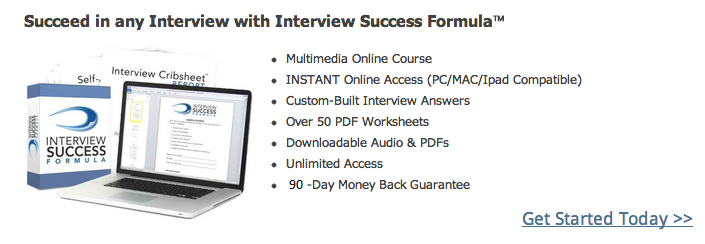 If you want to land a high pressure job, then you should do some interview preparation for the stress interview. The name doesn't mislead.
If you want to land a high pressure job, then you should do some interview preparation for the stress interview. The name doesn't mislead.
Sometimes, you will face interviewers who act cold and threatening. No matter how well you answered a question, the responses you get is, at best, a blank poker face. And whenever your answers are slightly less than perfect, they seem to jump all over you. What's happening? Was your interview preparation not good enough? Is your breath really that bad?
The employer is testing you. He or she wants to know if you can maintain control and confidence under pressure.
If you find yourself in an uncomfortable stress interview, recognize that you are likely being tested. Take a breath, smile to yourself, and let the interviewer's behavior roll right over you (it's just an act - hopefully).
What types of responses might you need to prepare for the stress interview? Below are examples of what an employer might ask you to push your buttons. Your preparation will need to include creating answers to these questions, and mentally readying yourself for these types of sweat inducing statements.
Here are a few examples for you to consider:
I don't think you're the right candidate for this job.
In this format, you are given blanket negative statements instead of actual questions. The interviewer is trying to stress you out by asking a very abstract, hard-to-answer statement.
In these situations, rather than try to create a blanket defense, you should ask follow up questions to clarify why they feel this way. Then you can address their concerns one at a time and follow up with your well prepared arguments for what makes you a good fit for this position.
If you are not familiar with asking follow up questions as a response to tough statements, you will want to practice this technique beforehand. Otherwise, you may end up with the typical reaction: flush cheeks, stammering, and defensive statements. If you do find yourself starting to panic, think about where you are, take a long breath while you count to three, then respond.
Remember to stay calm, learn what their concerns are, and show that you can either speak directly to that concern, or show that you have other skills that are an effective substitute.
Why don't you tell me about a time that your time management skills failed you.
This negative example is similar to, "Tell me about a time you got in a big fight with your co-worker." Often, the interviewer asks this to see whether you will sell yourself out. You are welcome to respond with, "I don't think I've ever experienced that situation before."
Yet, you will also want to prepare for broader negative questions that demonstrate your ability to take on obstacles. These sound like, "Tell me about a time you made a mistake and how you overcame it."You can prepare for these like other behavioral interview question.
In your stress interview, you must also be ready for the interviewer to interrupt you mid-story and deride your failures, just to see whether you can maintain your composure. You may want to practice these interruptions ahead of time, so you aren't surprised on the day of.
What did you dislike about your last job?
Despite the negativity coming from the other side of the desk, you should be ready to stay positive. Avoid saying anything nasty. Instead, during your interview preparation, focus on explaining why you want to pursue this new job.
You may encounter an aggressive interviewer who will try to cause you to switch your position. Don't stress it. If they push you for a more specific response to what you didn't like, you can respond with, "Even when I occasionally came across a specific task that wasn't fun, I knew that doing the job done right meant taking on whatever came up."
Remember, avoid falling into the trap of saying or doing things that will ruin your job interview. Remain calm and confident, and be ready prove your value on the job.


